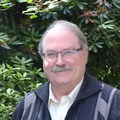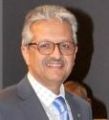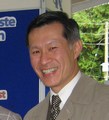CREATING THE FUTURE IN THE TOWNSHIP OF LANGLEY: “Whole –system thinking is part of our culture,” stated Kevin Larsen, Manager of Water Resources & Environment

Asset management has traditionally been about hard engineered assets such as waterlines, sanitary and storm sewers. Kevin Larsen recognizes that watershed systems are also ‘infrastructure assets’. “The Township is implementing a life-cycle approach to valuing and managing our hard engineered assets,” stated Kevin Larsen. A future next step would be to extend the life-cycle approach to include valuation of the services provided by watershed systems.










